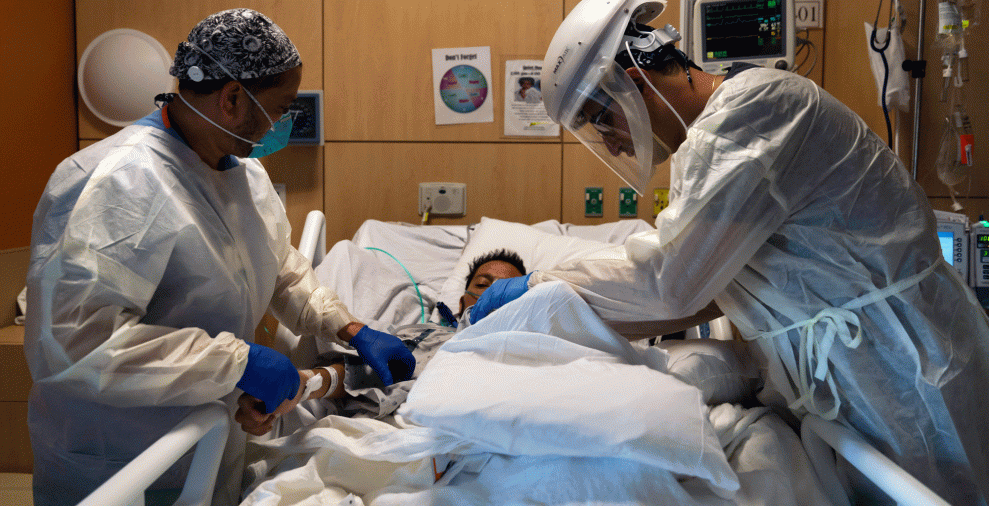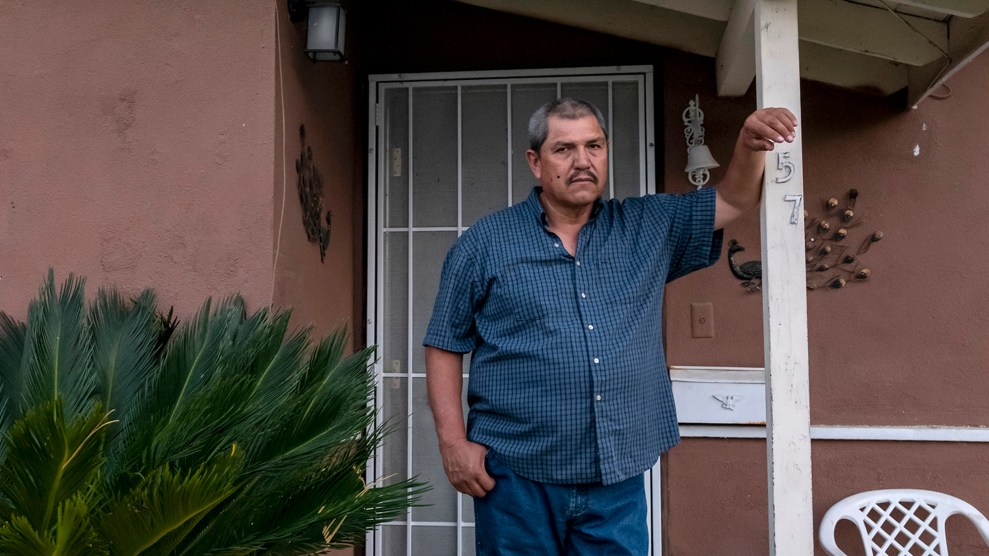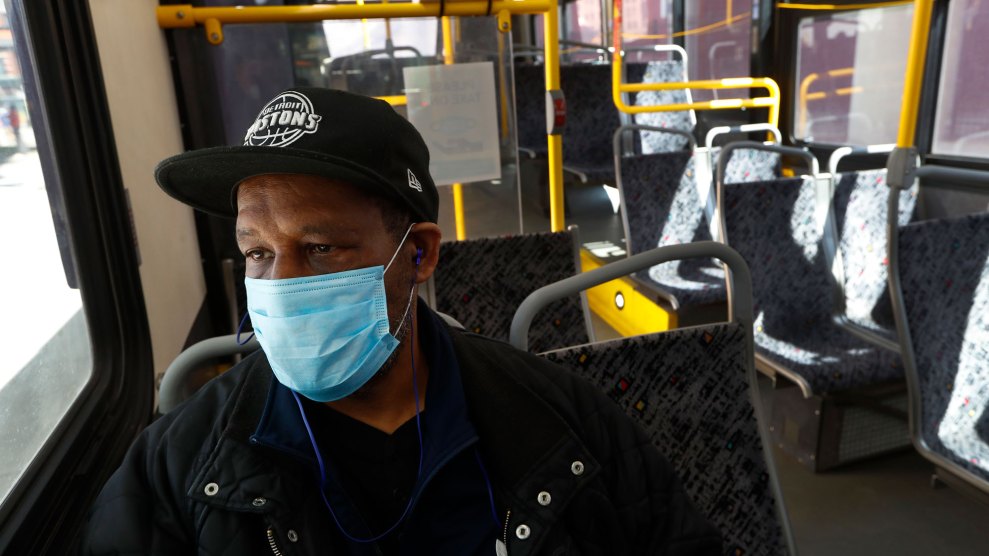
Jae C. Hong/AP
As coronavirus case rates and deaths reach record highs and ICUs across the country near capacity, new data from the Centers for Disease Control and Prevention confirms the pandemic’s disproportionate toll on people of color. Black, Native, and Latinx people are between three and four times more likely to be hospitalized with the coronavirus than white people, according to data from March through November.
While elderly people are at a higher risk from the virus, the hospitalization rates for Black and Latinx people above age 65 are particularly high. Over the course of the nine-month pandemic, more than one in 100 elderly Latinx and Black people have been hospitalized with COVID-19.
The new numbers on hospitalizations echo data on disproportionate death rates by race. As my colleagues Edwin Rios and Sinduja Rangarajan wrote back in April, there are myriad reasons for the pandemic’s uneven impact:
Black Americans are more likely to work jobs that are considered essential—they’re grocers, fast-food workers, transit and postal workers. As a result, they risk greater exposure to the disease. Black people in the North tend to live in dense, historically segregated cities—Milwaukee, St. Louis, Detroit, Chicago—in which disease can spread quickly. Black people in the South, Louisianans excepted, live in states that did not expand Medicaid, leaving many of them uninsured. (A Mother Jones analysis found that six of the country’s 10 most vulnerable states, according to something called the “COVID-19 Community Vulnerability Index,” are located in the South. In Mississippi, where 90 percent of counties are particularly vulnerable, Black people make up 38 percent of the state’s population and a startling 66 percent of COVID-19 fatalities.) Owing to factors like the siting of toxic dumps and new highways, Black people suffer disproportionately from underlying health conditions such as asthma and heart disease that elevate the risk of death in coronavirus patients.
According to the APM Research Lab, as of early November, the coronavirus has killed one in 875 Black Americans, one in 925 Native Americans, and one in 1,275 Latinx Americans.

















